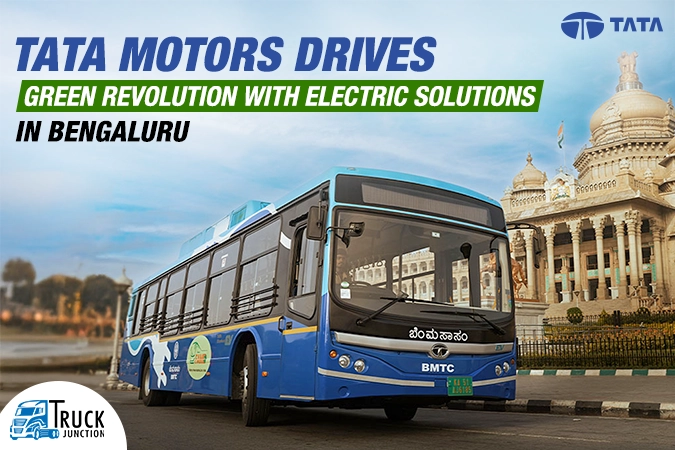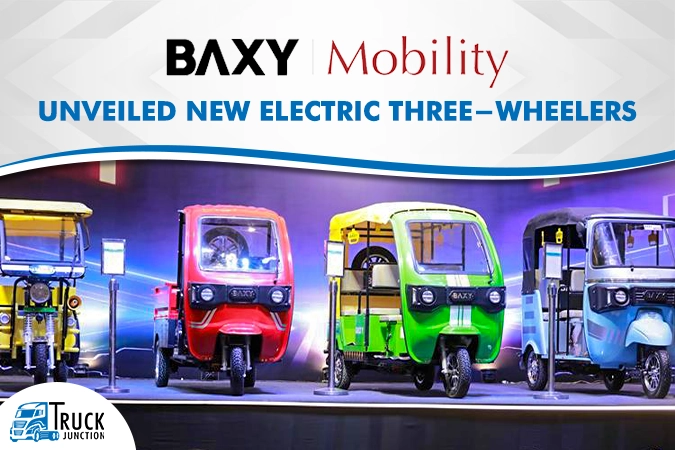Ratan Tata, the former chairman of Tata Sons, has died, the group announced in a statement on Wednesday. He was 86. Ratan Tata, who led the conglomerate for over 20 years as chairman, has been undergoing intensive care in a Mumbai hospital since Monday.
As the driving force behind Tata Motors, Ratan Tata transformed the commercial vehicle sector in India and beyond. His vision and commitment to innovation positioned Tata Motors as a leader in the industry. Let’s explore how Ratan Tata made a significant impact on Tata Motors, turning it into a game changer.
Tata Motors : A Global Leader in Innovative Vehicles Since 1954
Tata Motors has developed a robust range of vehicles, including cars, buses, trucks, and military vehicles, since entering the automotive industry in 1954. Moreover, the company operates in several countries, such as the UK, South Korea, Indonesia, and Thailand. It continually strives to introduce innovative products that appeal to younger customers. This global footprint showcases the brand's dedication to growth and modernization.
One significant milestone in Tata Motors’ history was the launch of the Tata 407 Light Commercial Vehicle (LCV) in 1986. Its reliability and performance quickly gained popularity not only in India but also worldwide. Furthermore, Tata Motors made significant advancements in the commercial vehicle sector over the years.
Here are Some Key Achievements
-
In 1988, Tata Motors ventured into the passenger vehicle market, expanding its offerings.
-
In 1991, the company launched the Tata Sierra and established a joint venture with Nitol Motors, marking its first assembly unit outside India.
-
The introduction of the Tata Estate in 1992, a station wagon based on the earlier Tata Mobile design, further showcased their innovation.
-
In 1993, Tata Motors collaborated with Cummins Engine Inc., leading to the introduction of powerful diesel engines with lower emissions.
-
The launch of the Tata Sumo in 1994, a five-door SUV, contributed to its growing popularity.
-
In 1998, Tata introduced the ‘Indica,’ India’s first fully indigenous passenger car, alongside the Tata Safari.
-
The company went public on the New York Stock Exchange in 2004 and acquired Daewoo, a South Korean truck manufacturer, enhancing its commercial vehicle portfolio.
-
In 2006, Tata partnered with Brazil-based Marcopolo S.A. to launch the Tata Marcopolo Bus, further expanding its commercial offerings.
-
In 2008, Tata Motors Thailand was established, and the company launched the Tata Nano, the world’s cheapest car, along with acquiring Jaguar Land Rover.
-
The acquisition of the Spanish bus manufacturer Hispano Carrocera in 2009 allowed Tata to introduce the Starbus and Globus range of buses.
-
In 2011, Tata Motors Indonesia was established as a wholly-owned subsidiary, solidifying its presence in Southeast Asia.
-
In 2012, Tata launched the Tata Prima, a next-generation platform for heavy trucks, and collaborated with DRDO to develop Futuristic Infantry Combat Vehicles.
-
The introduction of the Tata Ultra platform for light trucks and buses in 2014 marked another milestone, as did the launch of the ‘T1 Prima Truck Racing Championship,’ India’s first truck racing championship.
-
In 2015, Tata initiated the SkillPro program for youth skill development and appointed Lionel Messi as its global brand ambassador.
-
In 2016, Bollywood actor Akshay Kumar became the brand ambassador for Tata’s commercial vehicles, enhancing its visibility.
-
The signing of a memorandum of understanding with Volkswagen in 2017 aimed at vehicle development in India.
-
In 2018, Tata Motors sold its aerospace and defense business and became the first automaker to surpass 1 million sales, securing the 16th position among the world's largest light vehicle companies.
Today, Tata Motors, the conglomerate’s vehicle division, is at the forefront of the electric vehicle (EV) revolution in the country. The company has seen a turnaround in its fortunes in the internal combustion engine (ICE) market as well. In 2023-24, Tata Motors launched multiple new electric models, enhancing its EV portfolio significantly. Moreover, the company aims to achieve a 30% market share in the electric vehicle segment by 2025, solidifying its commitment to sustainability.
Today, it stands as the third fastest-growing brand among the top 20 automotive companies globally, boasting a brand value higher than Airtel and Infosys. Their vehicles are sold in many countries across Africa, APAC, and Latin America, while Jaguar and Land Rover vehicles reach markets in Europe.
A Prominent Figure in India’s Business World
After stepping down as chairman of Tata Sons in 2012, Ratan Tata stayed actively involved in mentoring young entrepreneurs and investing in start-ups. Through his investment firm, RNT Capital Advisors, he supported over 30 start-ups, such as Ola Electric, Paytm, and Lenskart.
His passing has led to an outpouring of grief and tributes from across the country. Prime Minister Narendra Modi remembered Ratan Tata as a visionary business leader and a compassionate person. Business leaders like Gautam Adani, Anand Mahindra, and Sundar Pichai also expressed their condolences.
Follow us for the Latest Truck Industry Updates -
☞ Facebook - https://bit.ly/TruckFB
☞ Instagram - https://bit.ly/TruckInsta
☞ YouTube - https://bit.ly/TruckYT
























